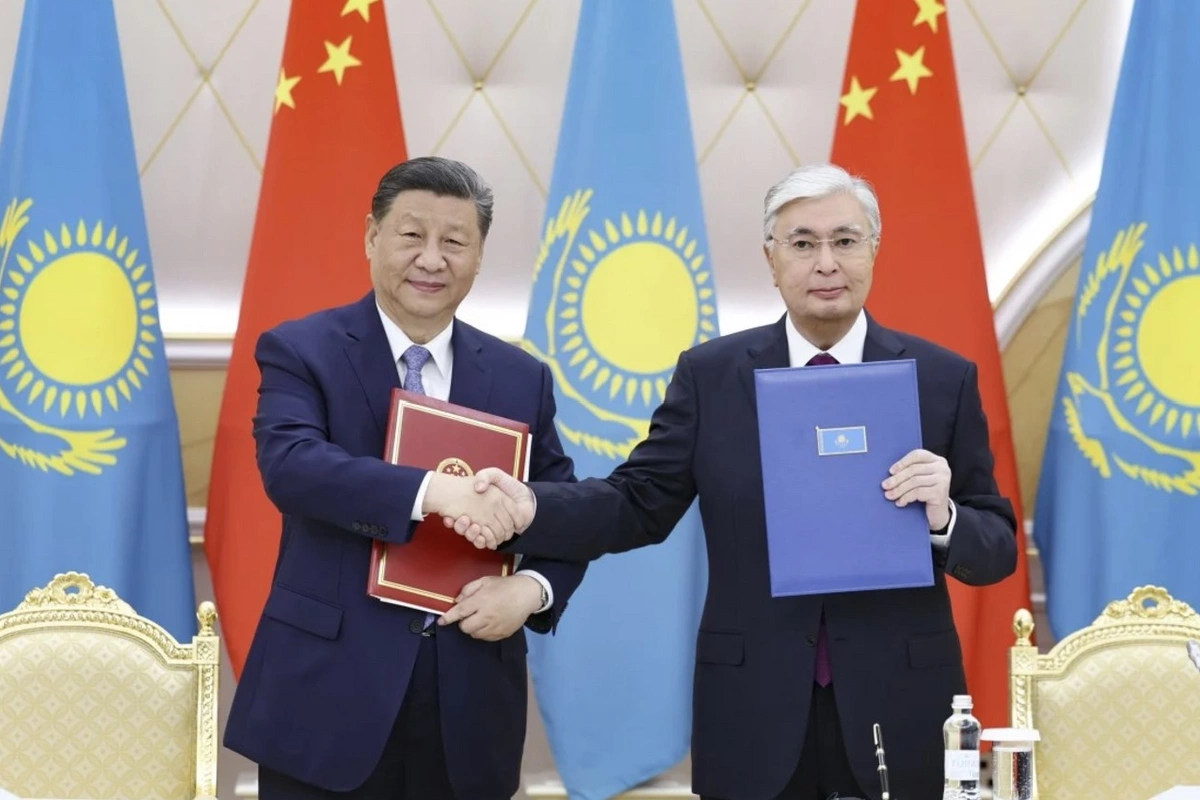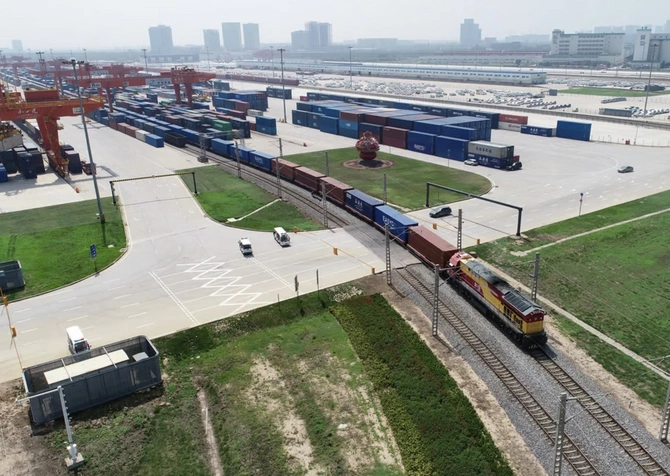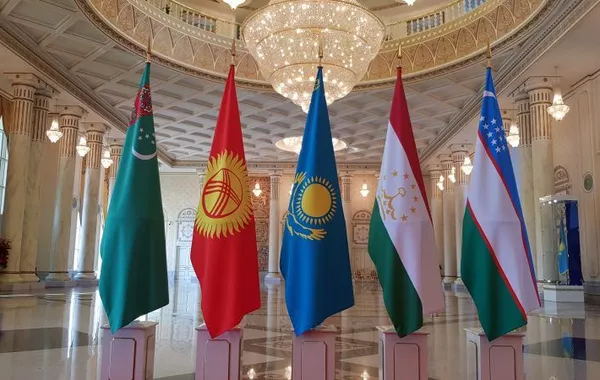
Photo: Xinhua
Chinese Foreign Minister Wang Yi hosted his Central Asian counterparts in Chengdu, Sichuan province, earlier this month for the fifth China-Central Asia Foreign Ministers" Meeting. The outcomes of the meeting highlight Beijing"s increasing influence in Central Asia, The Caspian Post reports citing foreign media.
Following their independence in 1991, the Central Asian states of Kazakhstan, Kyrgyzstan, Tajikistan, Turkmenistan and Uzbekistan grappled with challenges ranging from domestic strife and cross-border tensions - such as those between Kyrgyzstan and Tajikistan - to the threats posed by Islamic extremism. While the region seems to be trending towards stability, the underlying causes of instability persist. The war in Ukraine, now nearing its third year, has shifted some of Moscow"s attention away from Central Asia. The symbiotic relationship China and Russia each have with Central Asia has been characterised as Moscow holding the gun while Beijing holds the wallet. However, this dynamic has evolved, with Beijing inheriting the responsibilities of financial investor and security guarantor.
Beijing views strengthened economic and trade ties with Central Asia as a strategic pathway to guaranteed stability. By fostering regional integration and deepening cooperation, China aims to create an environment of shared prosperity that supports broader security objectives.
China"s trade with Central Asia surpassed US$70 billion in 2022 and reached US$90 billion in 2023. It has replaced Russia as the region"s top trade partner. Kazakhstan is China"s primary partner in the region, with the volume of imports and exports hitting US$41 billion last year.
The region is also a major recipient of Belt and Road Initiative investments. As of 2023, the cumulative turnover of completed projects in the region was nearly US$64 billion. Central Asia plays an important geographic role as a transit hub for China.

About 80 per cent of continental cargo flows between China and Europe goes through Kazakhstan, thanks to the Trans-Caspian International Transport Route, an alternative to the Northern Route that passes through Russia. China and Kazakhstan are working to synchronise transport policies and adopt advanced technologies for logistics management to reduce transit times and costs, making the Trans-Caspian route a more competitive and attractive option for international trade.
With growing demand for more investment, it is becoming important to ensure the region is safe for Chinese businesses. Private security companies have reportedly been deployed to protect Chinese companies in the region.
Fears of attacks on Chinese nationals in Central Asia are not unfounded. In 2016, a suicide bomber attacked the Chinese embassy in Bishkek, Kyrgyzstan"s capital. In 2022 in Afghanistan, which borders three Central Asian countries, Islamic State claimed responsibility for attacking a hotel in Kabul that had been popular among Chinese nationals. Following the withdrawal of US forces from Afghanistan and the Taliban"s return to power, China and the Central Asian states have begun shifting towards normalising relations with Kabul. Earlier this year, Kazakh President Kassym-Jomart Tokayev announced the removal of the Taliban from Kazakhstan"s list of terrorist groups, emphasising the importance of trade and economic cooperation with Afghanistan. There is a regional consensus on the need to combat the illicit narcotics trade stemming from Afghanistan while also addressing its humanitarian needs. China has played a mediating role in conflicts involving Afghanistan, its neighbours and the United States, notably through initiatives like the Quadrilateral Coordination Group formed in 2015. Beijing and its regional partners continue to address Afghanistan"s challenges through platforms like the Shanghai Cooperation Organisation (SCO). At the recent SCO summit in Astana, Kazakhstan, member states reaffirmed their commitment to supporting the vision of Afghanistan as an independent, neutral and peaceful state free from terrorism and narcotics. SCO members also pledged support for Afghanistan"s development. For its part, Kazakhstan has sent humanitarian aid.
The most recent China-Central Asia Foreign Ministers" Meeting signifies a growing push towards strengthening regional leadership and achieving development goals through deeper integration.
Last month, Kazakhstan signed eight commercial agreements worth US$2.5 billion with Chinese companies during Kazakh prime minister Olzhas Bektenov"s visit to Shanghai. Uzbekistan, Central Asia"s most populous nation, has received up to US$18 billion in development finance from China over the past two decades, with more growth expected.

A tourist visits a duty-free shop on the China-Kazakhstan border in Horgos, Xinjiang Uygur autonomous region, on July 26. Photo: Xinhua
During the Chengdu meeting, Uzbek and Chinese foreign ministers reportedly signed an agreement allowing visa-free travel for 30 days, similar to an existing deal with Kazakhstan. Meanwhile, China has announced it will provide 1,500 training opportunities and 600 additional scholarships for Central Asian students.
Visa-free deals seem to be strengthening people-to-people relations. The number of Chinese tourists visiting Kazakhstan reportedly surged to 550,000 between January and October, surpassing the 2023 figure of 367,000 visitors.
China"s inroads into Central Asia fundamentally differ from its outreach to other parts of the world. Central Asia will remain a priority for Beijing not only because of its proximity but also because the region"s security and integration ensure stability in western China. With the risk of escalated confrontations in the Asia-Pacific, China cannot deal with threats on multiple fronts. Institutions like the SCO have enabled China to export norms for combating the "three evils" of terrorism, separatism and extremism, while also mobilising member states to adopt its Global Security Initiative, which promotes the concept of "indivisible security" and cooperation in areas such as food and energy.
While some critics dismiss the initiative, Beijing"s growing economic influence and increased security responsibilities in Central Asia present an opportunity to actualise these goals. This is a path that China and Central Asia must chart together.
Share on social media
